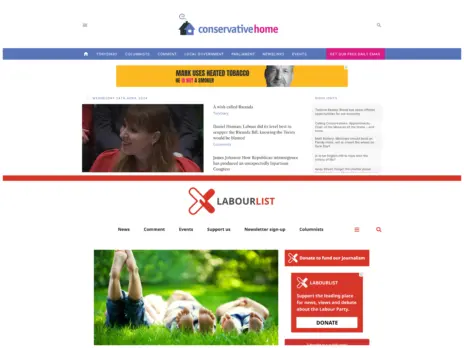
Labour MP and former journalist Meg Hillier has warned that some politicians may back statutory regulation as revenge for the expenses scandal.
The former junior minister told Press Gazette she does not support the statutory underpinning being called for by her party.
She also revealed the extent to which statute may be used as a form of vengeance by describing how one non-Labour MP recently told her that one “storm in a teacup” story had changed their view on regulation.
“IPSA [Independent Parliamentary Standards Authority] had done this rather bizarre survey asking MPs what we should be paid,” she explained, saying most did not respond.
“So this was published and papers reported it as: ‘These fat cat MPs all think they should be paid 20 per cent more’. Which was not the case – but that was what the survey sort of suggested – it wasn’t entirely accurate, it was an extrapolation from the survey.
“And this MP said, ‘well… I wasn’t going to vote for statutory underpinning, but I’m minded now to do so.”
Hillier, who previously worked for local papers and Housing Today magazine, said she wanted to act as a “small, still quiet voice, for journalists in Parliament”.
She said: “If that happens on something as little as one storm in a teacup story about a little survey of a hundred MPs on their salaries, and the coverage of that, what if there is something more?
“That shows you that the psychology exists in the pack of (not all of the) 650 MPs… that there can be a desire to use the powers that are there to bad effect.”
But the former Shadow Secretary of State for Energy and Climate Change said she was not making excuses for all journalists.
Although she disagrees with the views of Labour leader Ed Miliband and his deputy Harriet Harman, she can see where they are coming from – “channeling that public anger about the Milly Dowler phone-hacking and some of the other phone hacking”.
“Hacked Off [as well] – you can see where they’re coming from and they’re a very powerful lobby because there are a number of high-profile, quite rich people involved,” she said. “But I just think we have to have a look at where do we want to be in 20, 30, 40, 50 years time. And once you do this it’s very hard to unwind it.”
This article first appeared in Press Gazette – Journalism Weekly.
Email pged@pressgazette.co.uk to point out mistakes, provide story tips or send in a letter for publication on our "Letters Page" blog






